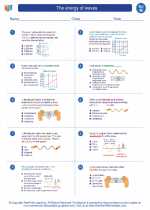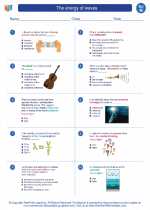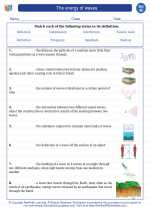Microbiology
Microbiology is the study of microorganisms, which are microscopic organisms such as bacteria, viruses, fungi, and protozoa. These tiny organisms play a crucial role in various biological processes, including nutrient cycling, disease, and the production of food and drugs. Understanding microbiology is important for fields such as medicine, agriculture, and environmental science.
Key Concepts in Microbiology
- Microorganisms: Understand the various types of microorganisms, including bacteria, viruses, fungi, and protozoa.
- Microbial Structure: Learn about the structure and function of different types of microorganisms.
- Microbial Growth: Explore the factors that influence the growth and reproduction of microorganisms.
- Microbial Metabolism: Understand the metabolic processes of microorganisms, including respiration, fermentation, and photosynthesis.
- Microbial Genetics: Study the genetic makeup and variation in microorganisms.
- Microbial Interactions: Learn about how microorganisms interact with each other and with other organisms in their environment.
- Microbiology and Disease: Understand the role of microorganisms in causing infectious diseases and the principles of disease control and prevention.
- Applied Microbiology: Explore the practical applications of microbiology in fields such as medicine, agriculture, and biotechnology.
Study Guide for Microbiology
To excel in microbiology, it is important to engage in the following study practices:
- Read and understand the foundational concepts of microbiology, including the characteristics and classification of microorganisms.
- Study the structure and function of different types of microorganisms, including bacteria, viruses, fungi, and protozoa.
- Explore the principles of microbial growth and factors that influence microbial reproduction.
- Understand microbial metabolism and the different metabolic processes exhibited by microorganisms.
- Learn about microbial genetics, including gene expression, mutation, and genetic variation in microorganisms.
- Investigate the interactions of microorganisms with their environment and with other organisms.
- Understand the role of microorganisms in causing diseases and the principles of disease control and prevention.
- Explore the practical applications of microbiology in various fields, such as medicine, agriculture, and biotechnology.
- Engage in practical laboratory work to observe and study microorganisms firsthand.
- Stay updated with current research and advancements in the field of microbiology.
By mastering these key concepts and study practices, students can develop a strong foundation in microbiology and be well-prepared to apply their knowledge in various scientific and practical contexts.
.





